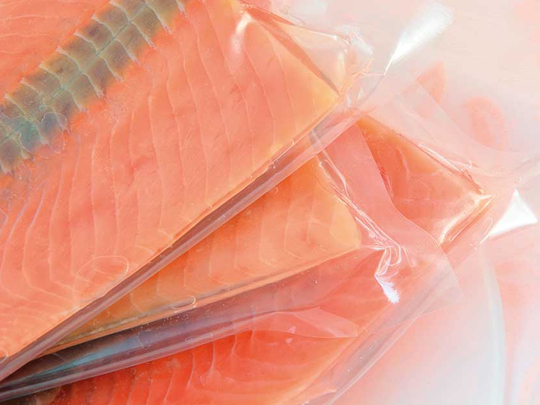
Dubai: Dubai Municipality will soon introduce a food-tracking process, including DNA sequencing, to ensure food quality in the emirate.
Though the food products entering the UAE market are safe and go through a strict regime of checks, a senior Dubai Municipality food safety expert said that creating awareness about the global malpractices is key to preventing fraudulent practices from creeping into the local market.
Bobby Krishna
|
Speaking to Gulf News on the sidelines of a conference held as part of the Food Safety Week, Bobby Krishna, Dubai Municipality’s food safety specialist, said that using latest technologies and smart tools is key to detecting food fraud or malpractices that are prevalent in the global market, specially in the fresh and frozen food sector.
“We have an established process of testing and checking all food imports but what we are trying to do now is create more awareness among the local hospitality sector and retailers about what is happening globally, while at the same time introducing latest technologies to detect food safety issues,” said Krishna.
According to Krishna, DNA mapping and other tracing tools are already in use in Europe and in the US and it’s about time it is used here to safeguard the rights of the consumers.
“We are looking at introducing traceability gradually that will help us trace a product from the source to the plate. The UK and the US are already using encrypted technology like tagging and bar coding fish and meat which helps identify the source and find all relevant data with just a scan,” said Krishna.
He added that the Dubai Municipality is working on developing a comprehensive system that will cover an entire spectrum of food products, starting with high-risk items like infant formula and perishable commodities.
Highlighting the prevalent practices, he said that the seafood products, particularly the farmed variety, are more prone to fraud.
“What is common globally is the mislabelling of fish, use of chemicals and antibiotics to maintain its freshness and colour, use of unethical methods to make the fish more than it actually is and there are many other issues. Locally, we are not yet facing such problems but we are sounding an alert and want to empower the industry to detect these frauds,” said Krishna.
According to the Food and Agriculture Organisation of the United Nations (FAO), the global per capita fish consumption has risen to above 20kg per year for the first time and is expected to almost double by 2030.
The UAE’s love for fish protein is obvious from the fact that its per capita annual consumption at 24kg is higher than the global average.
With fish quickly becoming the most preferred source of protein and more farmed fish entering the market, the safety concerns of the authorities seem appropriate.
Quoting a US survey data, Krishna said that in Texas, 49 per cent of the fish were found to mislabelled.
“There have been cases where the fish is totally different from what it is labelled and sold as. When the fish are frozen and skinned it is hard to identify, so people just buy assuming the label to be correct. Frozen fish are also glazed to protect it from spoiling, but glazing adds to its weight by 2 to 5 per cent, which is OK, but there are cases where the weight is manipulated by up to 40 per cent through water retention. These are some of the practices we are trying to create awareness about before they start happening here,” he said.
Box
Seafood fraud
Carbon monoxide treatment for visual appeal
Use of antibiotics and chemicals
Inappropriate feed
Glazing to increase weight of fish by up to 40 per cent
Mislabelling of fish to increase margin
Mixing of different varieties of shrimp and prawns












